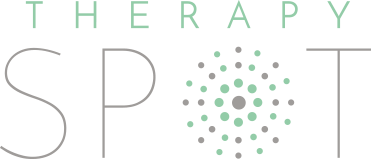Speech delays in children are more common than many people realize, and they happen for all kinds of reasons. It is natural for parents to be concerned when their child’s speech development does not appear to be on track, but early intervention in the form of speech therapy can resolve a lot of the issues and open up a world of communication to children who, for whatever reason, struggle with speech.
Speech therapy can be helpful for older children and adults as well. Speech can be impacted by illness, injury, or disability in people of any age, and a speech therapist can help their client get their speech back to normal, or to establish a new normal in which communication can still happen, albeit in a different way.
What Is Speech Therapy?
As the term suggests, speech therapy is an intervention that is aimed at helping people acquire, maintain, or improve the ability to communicate through speech. Because speech problems can be caused by so many things, a speech therapist or speech-language pathologist (SLP) uses a wide array of treatment methods for different clients. For instance, therapy sessions for a non-verbal autistic child will look very different to therapy sessions for someone whose difficulties arise from a cleft palate.
For this reason, speech therapy is often an integral part of an overall healthcare plan. The SLP conducts an in-depth assessment of the client, during which time they will learn about the client’s relevant history and evaluate their speech and communication skills to establish a baseline. They will then formulate a speech therapy program that is targeted to the client’s unique needs and circumstances. Evaluations are done periodically to assess how the client is progressing relative to the initial baseline. Throughout this process, the SLP may, depending on the circumstances, share and exchange information with other members of the healthcare team, such as an occupational therapist, a dentist, or a doctor.
Who Can Benefit from Speech Therapy?
Speech therapy can help people of any age who live with a variety of disorders and conditions. Some common ways in which speech can be impaired are listed below.
Expressive Language
Expressive language is the part of communication that most of us regard as “speech”: it is the expression of thoughts, ideas, or information. Expressive communication takes several forms, such as typing an email, using an assistive communication tool, or simply speaking. People with expressive language disorders often understand what is communicated to them, but they struggle with the process of conveying what they want to say. People with developmental disabilities like autism and Down syndrome, and survivors of head injuries, often have expressive language impairments.
Receptive Language
Communication is a two-way process, with each person in the exchange both giving and receiving information. Receptive language describes the ability to understand and process what the other person is saying. For example, someone with receptive language difficulties may have trouble following directions or answering questions. This is common among people with autism and undiagnosed hearing loss.
Cognitive-Communication Abilities
In order to communicate, we first have to come up with the idea or information that we are going to express. Therefore, some communication problems result not from an inability to speak or communicate, but from cognitive difficulties. We see this in some people who have experienced stroke, brain injury, and abnormal brain development. Cognitive-communication disorders can manifest in a number of ways, including memory loss, difficulty speaking, and impaired problem-solving.
Aphasia
Aphasia is a disorder that happens when there is damage to the part of the brain that is in charge of language. It takes several forms: some people omit words like “and” and “the”, while others add a lot of unnecessary words to their sentences. The most common cause of aphasia is stroke, with other causes being dementia, head injuries, and brain tumours.
Fluency
Fluency refers to the tempo and rhythm of our speech, and it gives the sense of sentences “flowing”. If the flow is interrupted, this can indicate a fluency disorder. Examples include stuttering, where a word is interrupted and sometimes repeated, and cluttering, where the person speaks very fast, as if the words are tripping over each other. Fluency disorders have a wide variety of causes, from genetics to psychological trauma.
Articulation
An important part of speech is our ability to form word sounds, and this can be impaired by environmental factors, such as the child not learning the language from a native speaker of that language, physical factors, such as problems with the teeth or tongue, and developmental factors. People who are affected might add, drop, or distort sounds. For example, the individual may say, “wainy” instead of “rainy”, or “thith” instead of “this”.
Getting Started with Speech Therapy
At Therapy Spot, we can help people of all ages, at all stages of speech development. The clients we have helped include non-verbal autistic children, survivors of traumatic brain injuries, stroke survivors and more. With our compassionate approach and speech therapy programs tailored to each individual, we can help with your or your loved one’s communication goals. Contact us for more information.






